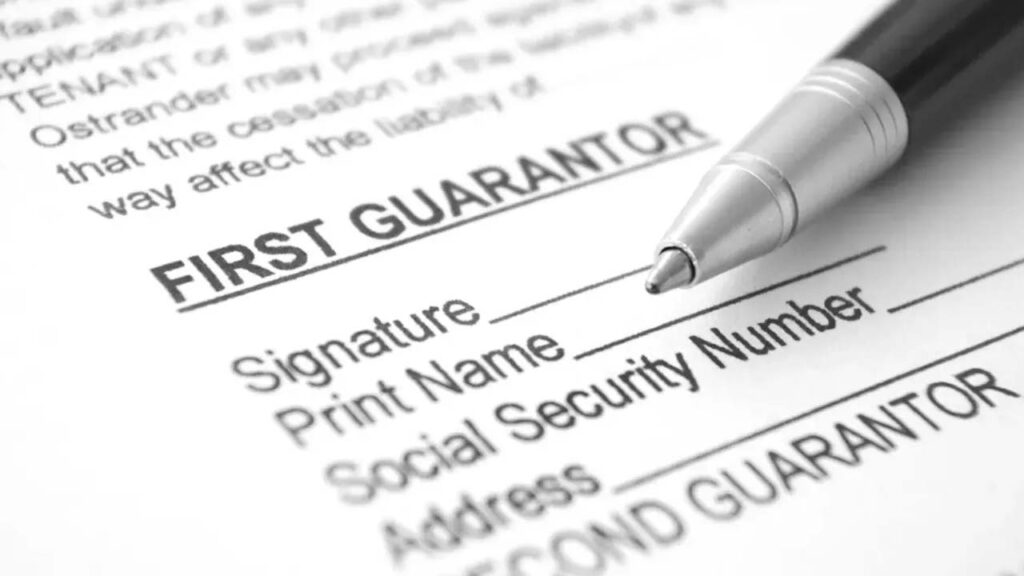SGDLoan.com – When applying for a loan in Singapore, there are instances where banks may require a personal loan guarantor to secure the loan.
This is a common practice, especially when the borrower does not fully meet the eligibility criteria such as income level, credit history, or employment stability.
A personal loan guarantor is someone who agrees to take on the financial responsibility of repaying the loan if the primary borrower fails to do so.
While the role can help someone secure much-needed financing, it is essential to understand the risks and responsibilities before agreeing to become a guarantor.
In this article, we’ll explore what it means to be a personal loan guarantor in Singapore, who qualifies to be one, and the various risks and legal obligations involved.
Whether you are thinking of asking someone to be your guarantor or have been asked to step into this role, it’s important to fully understand the financial and legal implications.
What Is a Personal Loan Guarantor?

A personal loan guarantor is a person who agrees to take responsibility for repaying the loan if the borrower defaults. Banks and financial institutions often require a guarantor when a borrower does not meet all the criteria needed for a loan, such as having a stable income or a sufficient credit score.
In essence, the guarantor acts as a safety net for the lender, ensuring the loan is repaid even if the borrower cannot fulfill the repayment terms. This role is particularly significant in unsecured loans where the bank has no collateral to fall back on in case of default.
Who Can Be a Guarantor in Singapore?

In Singapore, banks have strict requirements for someone to act as a personal loan guarantor. To qualify, the person must meet specific financial, legal, and residency criteria. Here are the common requirements:
| Criteria | Description |
|---|---|
| Age | The guarantor must be at least 21 years old, though some banks may require them to be 25+. |
| Residency Status | The guarantor must be a Singapore Citizen or Permanent Resident. |
| Financial Stability | A stable monthly income is usually required, typically SGD 2,000 or more. |
| Credit Record | Guarantors must not have a history of poor credit or defaults on past loans. |
| Legal Standing | They must not be bankrupt or under any legal restrictions. |
The guarantor is essentially liable for the loan repayment if the borrower defaults. As such, banks generally prefer a reliable person with a stable income and good financial standing.
Guarantors are often close relatives, such as parents or spouses, but can also be trusted friends or even business partners, depending on the relationship and financial standing.
Understanding the Personal Guarantee Loan Agreement

A personal guarantee loan agreement is a formal, legally binding document that outlines the terms and conditions under which a guarantor agrees to take responsibility for a loan. This agreement serves to protect the lender and provide clarity on the role and liability of the guarantor.
This agreement usually includes:
- Loan Amount and Tenure: The total amount borrowed and the period over which the loan will be repaid.
- Guarantor’s Obligations: The conditions under which the guarantor becomes liable, often triggered by a default in repayment.
- Extent of Liability: This outlines whether the guarantor is responsible for the full loan or only a portion of it.
- Joint and Several Liability Clause: In some agreements, multiple guarantors may be responsible together or individually for the loan amount.
It’s crucial for both the borrower and the guarantor to fully understand the terms before signing this agreement. The consequences of default are serious, and any misunderstandings can lead to significant legal and financial repercussions.
Risks and Responsibilities of Being a Guarantor

Becoming a personal loan guarantor is a significant financial commitment that carries both risks and responsibilities. While it may seem like a simple favor, the obligations involved are far-reaching and should be taken seriously.
Financial Liability
If the borrower defaults, the guarantor is required to repay the loan, including any late fees, interest, or legal expenses incurred by the lender in the process of collecting the debt. This can amount to a substantial sum, especially in the case of large loans.
Credit Score Impact
If the borrower misses payments, the guarantor’s credit score could be negatively affected. This can make it harder to secure future loans or lines of credit, as the default will appear on the guarantor’s credit report.
Legal Consequences
In the event of a default, the bank can take legal action against the guarantor. This could result in the seizure of assets or garnishment of wages, which can have long-lasting financial consequences.
Strained Relationships
When a borrower defaults, it can cause significant strain on the relationship between the borrower and the guarantor. The guarantor may feel resentment or frustration, especially if they are left with the financial burden.
It is essential for anyone considering becoming a guarantor to fully understand these risks and responsibilities before agreeing to sign any loan documents.
Can You Get a Bank Loan with a Guarantor?

Yes, it is possible to get a bank loan with a guarantor in Singapore, and in many cases, this is the preferred method for those who do not meet the full eligibility criteria for a loan on their own.
A guarantor helps to reduce the risk for the lender by providing additional assurance that the loan will be repaid. For borrowers who may have limited credit history or a low income, having a guarantor can significantly increase the chances of loan approval.
Common situations where a guarantor may be required include:
- Young adults or students: Those who do not yet have an established credit history may need a guarantor to prove their financial reliability.
- Freelancers or self-employed individuals: Those with irregular income might find it harder to qualify for loans without the backing of a guarantor.
- Foreign workers: Foreigners who have just moved to Singapore may need a guarantor since they may not have established a strong financial record in the country.
Several banks in Singapore, such as DBS, UOB, and OCBC, allow loans with a guarantor, and they typically offer flexible terms for such arrangements. Before proceeding, it is advisable to compare the different loan options and requirements across various financial institutions.
Things to Consider Before Agreeing to Be a Guarantor

Before agreeing to be a personal loan guarantor, it’s important to consider several factors carefully. While it might seem like a generous act, it comes with significant risks. Here are some key points to consider:
- Understand the Loan Terms
Carefully review the loan agreement to understand the full extent of the borrower’s obligations and your own responsibilities. Make sure you are clear on the repayment schedule, interest rate, and any potential penalties for late payments. - Assess Your Financial Situation
Ensure that you have the financial stability to step in and make payments if necessary. Being a guarantor means you may be responsible for repaying the entire loan amount if the borrower defaults. - Trust the Borrower
Make sure you have confidence in the borrower’s ability to meet their repayment obligations. Consider their financial habits and whether they are reliable. - Consult a Legal Expert
It’s highly recommended to consult a lawyer to ensure you fully understand the terms and your legal obligations. This is especially important when large sums of money are involved. - Negotiate Terms If Possible
If possible, negotiate the terms of the agreement. You might be able to limit the amount for which you are liable or establish conditions under which you can be released as a guarantor.
By following these steps, you can ensure that you are fully informed before agreeing to act as a guarantor.
How to Protect Yourself if You Decide to Be a Guarantor

If you have decided to become a personal loan guarantor, it’s essential to take steps to protect yourself. Here are some ways to minimise your exposure to risk:
- Request Regular Updates on the Loan
Stay informed about the borrower’s repayment progress. Request periodic updates from the lender to ensure that payments are being made on time. - Limit Your Liability
If possible, negotiate with the bank to limit your liability. For example, you could ask to guarantee only a portion of the loan or set a time limit on your role as a guarantor. - Ensure Legal Protection
Consult with a lawyer to include clauses in the agreement that will protect your rights. A release clause that allows you to be removed as a guarantor after a certain period or after a portion of the loan is repaid can offer additional peace of mind. - Keep Records
Keep a record of all communications and payments related to the loan. This can help you protect your interests in case of disputes.
While there is no way to fully eliminate the risks, these steps can help you manage your responsibility as a guarantor more effectively.
In Singapore, the role of a personal loan guarantor is an important but risky one. If you are considering asking someone to be your guarantor or being asked to become one, it’s essential to understand the full scope of responsibilities involved. Before making any commitments, ensure that both parties are clear on the terms and aware of the potential consequences.
Consulting with financial or legal experts can provide valuable insight and help you make an informed decision. Acting as a guarantor is not just a formality—it is a serious financial commitment that can impact your credit, assets, and relationships. Take the time to protect yourself and understand your obligations fully.









